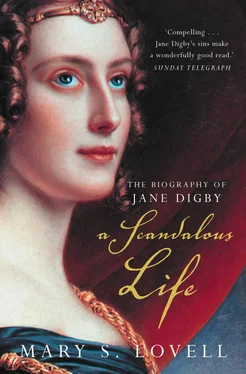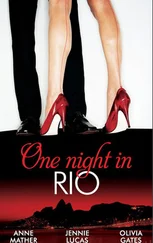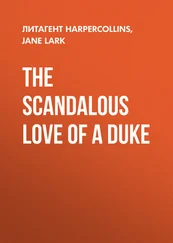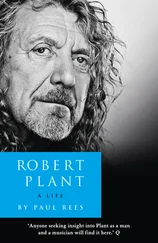On 9 March 1830, in the House of Lords, the Clerk read out the Order of the Day:
being the Second Reading of the Bill entitled, ‘An Act to dissolve the marriage of the Right Honourable Edward Baron Ellenborough with the Right Honourable Jane Elizabeth Baroness Ellenborough his now Wife, and to enable him to marry again; and for other purposes therein mentioned’, and for hearing Counsel for and against the same, and for the Lords to be summoned. 1
The witnesses were called, gave their evidence and were cross-questioned at length by Lord Ellenborough’s counsel and subsequently by any member of the House who wished to query the facts. Jane was not represented and offered no defence; no attempt was made to mitigate her actions. Ellenborough’s counsel, Mr Wigram, began calling staff from the Norfolk Hotel, who detailed the couple’s movements during their overnight stay in Brighton. Robert Hepple, the night porter on the evening of 7 February 1828, was questioned minutely about what he had heard after watching the prince go into Lady Ellenborough’s room at midnight:
Q: Did he lock the door after him?
A: He did.
Q: Did you still watch him?
A: I waited a short time at the door … a quarter of an hour the first time: then I went again … and remained there, I daresay, nearly an hour …
Q: How near to the door?
A: Quite close … I heard two persons talking, a man and a woman in the room … the language was foreign to me, it was not a language I understood at all.
Q: Did you hear anything more?
A: I heard him get into bed … and I heard them kissing.
The entire performance was repeated again in early April in the House of Commons, where radical members were not inclined to allow an easy passage of the reading to accommodate Lord Ellenborough. Not surprisingly, Jane’s grandfather did not take his seat for the hearing. On this occasion Robert Hepple was constrained to take his answer at the same point in the proceedings a step further:
Q: What did you hear then?
A: I could hear them kissing, and a noise that convinced me that the act of cohabitation was taking place.
A word-for-word transcript of the Commons hearing was reproduced in The Times. Thus respectable ladies might sit in their own drawing-rooms or boudoirs and learn the shocking nature of Lady Ellenborough’s guilt from Mr John Ward, the prince’s neighbour in Harley Street. Mr Ward testified that Jane was a frequent visitor to the house opposite, disguised with a white veil. Sometimes he saw her in the upper-floor room which faced this drawing-room:
Q: Have you ever observed anything in particular passing between them?
A: On one occasion I saw Prince Schwarzenberg assisting in dressing the lady.
Q: In what state was the lady at this time?
A: The Prince was lacing her stays.
Jane’s groom, William Carpenter, was as economical with his answers as could possibly be while remaining truthful under oath. For his loyalty to his mistress he was told that he was the most difficult and unwilling witness it had ever been counsel’s misfortune to examine. Yet even young William had to admit that he had accompanied Lady Ellenborough when she went to the Castle Hotel, Richmond, one afternoon with the prince. Yes, he had put the horses up there, and yes, he had lied to the head groom about where he had been that afternoon. Was there another similar occasion at Highgate? Yes. And yes, he had ridden out with his mistress on many other occasions when she met the prince. Yes, he had looked after her horse on many occasions while she visited a house in Harley Street. No, he did not know which house; he presumed it was her father’s house. Why should she ask him to wait so far from her father’s door? He did not know the reason why. Yes, she had left him in charge of her carriage after they left the Countess St Antonio’s house; Lady Ellenborough travelled with the prince in his closed chaise until they were within sight of Elm Grove at Roehampton where she transferred back to her own carriage again.
As William Carpenter stood down, a Member of the House intervened in the hearing. Mr Joseph Hume, Member for Montrose, bravely objected per se to the entire case on the grounds that
in this country a woman is punished severely for faults which in the husband are overlooked. For a single slip she is banished from society. And yet if justice is to be done to Lady Ellenborough, can anyone overlook the gross neglect on Lord Ellenborough’s part that has led to the unhappy events of the past couple of years? Ought not the charge to be read as one of criminality against Lord Ellenborough, who had permitted and even encouraged his wife’s association with the persons responsible for her downfall, rather than one of marital infidelity against an unfortunate lady whose youth and immaturity ought to have been safeguarded by her natural protector? What is a young lady to do who is neglected by her husband? Is she to stop at home all day long?
Touching upon the present line of questioning, in which the prosecution were clearly suggesting that while in the closed chaise together Lady Ellenborough and the prince indulged in a sexual encounter, Mr Hume asked seriously: ‘would anyone believe that a lady dressed to go out to dinner could be guilty of anything improper?’ Indeed, with the stays and panniers, wigs and feathers of a decade earlier, impropriety might have been difficult. However, fashions had changed in recent times, and the ribald laughter and sallies which greeted the Honourable Member’s final remarks left no one in any doubt that a number of members of the House had experienced little difficulty in misbehaving under similar circumstances.
Next the prince’s maid provided evidence that on the frequent occasions when Jane had called on her master the couple had usually spent the afternoon in bed together. How could she tell, asked the prosecutor? By the rumpled and marked bedlinen, replied the maid.
Miss Margaret Steele’s evidence served to damn Jane completely. She gave her answers quietly, so quietly that The Times journalist in the gallery missed some of her answers and complained about it indignantly in his column. She acknowledged that she was a personal friend of Lady Andover and Lady Anson and that for six years she had taken responsibility for the upbringing of Lady Ellenborough prior to her marriage. She told how she had been summoned to Roehampton on the occasion of the couple’s separation, how she accompanied Jane to the West Country, of her discovery that Jane was pregnant and of Jane’s confession that she had spent the night with the prince at the Norfolk Hotel:
Q: Did you ask Lady Ellenborough any questions as to why she supposed the child was not Lord Ellenborough’s?
A: When she first disclosed the circumstances of her guilt to me, I was told to keep it a secret. I think I made no further inquiry, and seeing me much agitated, and being very much agitated herself, she merely said to me, as I have stated, ‘God knows what I shall do, for the child is not Lord Ellenborough’s but Prince Schwarzenberg’s.’ That is to the best of my recollection. At that time I asked her no further questions. She was always very modest in her manner to me.
Miss Steele explained that Jane had asked her husband if she might sleep alone, having told him that she did not wish for another child. Questioned on the state of the marriage generally, Steely said she thought the couple had always appeared very happy together. ‘You do not recollect seeing Lord Ellenborough ever treat her with harshness, either in word or manner?’ On the contrary, replied the witness, ‘he was always remarkably kind and attentive to her.’ Indeed, she said, she had found Lord Ellenborough to be an unfailingly kind and considerate husband in every way. Indulgent? Very much so, indeed! She had been astonished when the separation occurred.
Читать дальше











